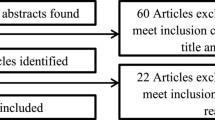Abstract
This paper considers proposals for developing ‘co-productive’ medical partnerships, within the UK National Health Service (NHS), concentrating in particular on the potential problem involved in combining professional and lay conceptions of health. Much of the literature that advocates the introduction of co-productive healthcare partnerships assumes that medical professionals and patients share, or can easily come to share, a common set of beliefs about what is valuable with regard to health interventions and outcomes. However, a substantial literature documents the contestability of the concept of health, particular across professional and lay divides. We suggest that this potential disagreement ought to be taken seriously, and suggest that the prospect of a co-productive NHS in which patients and professionals act in partnership is threatened by the existence of unresolved epistemic differences. We suggest that part of the solution may lie in re-framing this potential disagreement in the terms provided by Engel’s bio-psycho-social account of health, and demonstrate how support for this account can be grounded upon a critical realist foundation. What we call a ‘stratified conception of health’ reveals the potential complementarity between health beliefs which may have at first seemed to be essentially contradictory. We consider some of the practical implications this idea has for conceiving and creating co-productive medical partnerships.
Similar content being viewed by others
Notes
For example, see Walker [31].
The overarching philosophical system that frames an agent’s beliefs and shapes the manner in which they approach theoretical and practical questions. For more on this, see [4].
For instance, the National Prescribing Centre [22] estimated that 70% of the UK population is taking medicines at any one time to treat or prevent ill-health or to enhance well-being.
This point might be further illustrated by the well established distinction between professional discourses concerning disease and lay discourses concerning illness, for more of which see [16].
For instance, see Bhaskar and Danermark op. cit, p. 287.
Bhaskar [2], p. 36.
For greater exposition of this point see [8].
See [30].
References
Bhaskar, R. (1998). The possibility of naturalism. London: Routledge.
Bhaskar, R. (2008). A realist theory of science. Abingdon: Routledge.
Bhaskar, R. (2009). Scientific realism and human emancipation. Abingdon: Routledge.
Bhaskar, R., & Danermark, B. (2006). Metatheory, interdisciplinarity and disability research: A critical realist perspective. Scandinavian Journal of Disability Research, 8, 278–297.
Boorse, C. (1977). Health as a theoretical concept. Philosophy of Science, 44, 542–573.
Bury, M. (1998). Postmodernity and health. In G. Scambler & P. Higgs (Eds.), Modernity, medicine, and health: Medical sociology towards 2000 (pp. 1–29). London: Routledge.
Canguilhem, G. (1991). The normal and the pathological. New York: Zone Books.
Danermark, B. (2002). Interdisciplinary research and critical realism: The example of disability research. Alethia, 5, 56–64.
Daniels, N. (1985). Just health care. Cambridge: Cambridge University Press.
Daniels, N. (2008). Just health: Meeting health needs fairly. Cambridge: Cambridge University Press.
Department of Health. (2004). Better information, better choices, better health. London: DH Publications.
Department of Health. (2008). High quality care for all: NHS next stage review final report. London.
Engel, G. L. (1977). The need for a new medical model: A challenge for biomedicine. Science, 196, 129–136.
Groopman, J. E. (2007). How doctors think. New York: Houghton Mifflin Harcourt.
Heath, I. (2003). A wolf in sheep’s clothing: A critical look at the ethics of drug taking. British Medical Journal (Clinical Research Edition), 327, 856–858.
Jennings, D. (1986). The confusion between disease and illness in clinical medicine. Canadian Medical Association Journal, 135, 865–870.
Loewy, E. (2005). In defense of paternalism. Theoretical Medicine and Bioethics, 26, 445–468.
Marinker, M. (1997). Personal paper: Writing prescriptions is easy. British Medical Journal, 314, 747.
Marmot, M. (2005). Social determinants of health inequalities. The Lancet, 365, 1099–1104.
Marmot, M., et al. (2010). Fair society, health lives: Strategic review of health inequalities in England post 2010. London: University College London.
Mol, A. (2008). The logic of care: Health and the problem of patient choice. London: Routledge.
National Prescribing Centre. (2007). Introduction to medicines concordance & adherence to treatment. Available online at http://www.npci.org.uk/adherence_to_medicines/atm/intro/workshops/workshop_60minute_elearn_event1.php.
Nordenfelt, L. (1995). On the nature of health: An action-theoretic approach. London: Kluwer.
Royal Pharmaceutical Society of Great Britain. (1997). From compliance to concordance achieving shared goals in medicine taking. London: Royal Pharmaceutical Society.
Sandman, L., & Munthe, C. (2009). Shared decision-making and patient autonomy. Theoretical Medicine and Bioethics, 30(4), 289–310.
Seedhouse, D. (2001). Health: The foundations for achievement (2nd ed.). Chicester: Wiley Blackwell.
Segal, J. Z. (2007). “Compliance” to “concordance”: A critical view. The Journal of Medical Humanities, 28(2), 81–89.
Shorter, E. (1991). Doctors and their patients: A social history. Piscataway: Transaction Publishers.
Stilgoe, J., & Farook, F. (2008). The talking cure. London: Demos.
Tannen, D. (1998). The argument culture: Moving from debate to dialogue. New York: Random House.
Walker, R. (2008). Medical ethics needs a new view of autonomy. Journal of Medicine and Philosophy, 33(6), 594–608.
Wirtz, V., Cribb, A., & Barber, N. (2007). The use of informed consent for medication treatment in hospital: A qualitative study of the views of doctors and nurses. Clinical Ethics, 2, 36–41.
World Health Organization. (1946). WHO definition of health. Available online at: http://www.who.int/about/definition/en/print.html.
World Health Organization. (2003). Adherence to long-term therapies: Evidence for action. Geneva: World Health Organization.
Acknowledgments
The authors would like to acknowledge the support of the AHRC. This paper was completed whilst John Owens was a Collaborative Doctoral Award holder and Alan Cribb was an AHRC Knowledge Exchange Fellow.
Author information
Authors and Affiliations
Corresponding author
Rights and permissions
About this article
Cite this article
Owens, J., Cribb, A. Conflict in Medical Co-Production: Can a Stratified Conception of Health Help?. Health Care Anal 20, 268–280 (2012). https://doi.org/10.1007/s10728-011-0186-8
Published:
Issue Date:
DOI: https://doi.org/10.1007/s10728-011-0186-8




